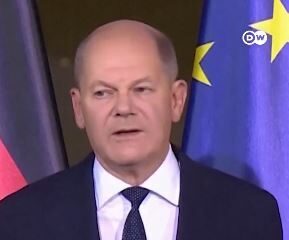Germany’s “traffic-light” coalition has officially disbanded, leaving Chancellor Olaf Scholz leading a minority government comprised solely of his Social Democratic Party (SPD) and the Greens. This development follows Scholz’s decision to dismiss Christian Lindner, leader of the Free Democratic Party (FDP), from his role as finance minister, a move that has shaken German politics.
The dissolution of the coalition was confirmed by Christian Dürr, parliamentary group leader for the FDP, following Lindner’s removal. Dürr stated that the FDP’s ministers would withdraw from Scholz’s government, formally marking the end of the three-way coalition that has governed Germany since late 2021.
The Greens voiced disappointment at the coalition’s breakdown but expressed their intention to remain part of a minority government led by Scholz. They stressed that maintaining Germany’s operational stability is vital, especially in light of global shifts, including the recent election of Donald Trump as President of the United States. Vice Chancellor and Economy Minister Robert Habeck articulated the Greens’ concerns in a joint press appearance with Foreign Minister Annalena Baerbock.
“I want to say for us that this feels wrong and not right tonight – almost tragic on a day like this, when Germany must show unity and the ability to act in Europe,”
Habeck said, reflecting on the impact of the coalition’s collapse. Baerbock echoed this sentiment, emphasizing the broader implications for Germany and Europe as a whole.
“This is not a good day for Germany and also not a good day for Europe,”
Baerbock added, underscoring the European Union’s need for stability.
Lindner’s dismissal occurred amidst prolonged disagreements within the coalition regarding Germany’s fiscal strategy for the upcoming year. Reports suggest that Lindner had proposed early elections after multiple attempts to bridge divides over the significant deficit anticipated in next year’s budget. Scholz, however, appeared frustrated by what he described as Lindner’s reluctance to relax strict spending rules—measures that would, among other objectives, increase aid to Ukraine.
“All too often, Minister Lindner has blocked laws in an inappropriate manner,”
Scholz stated, criticizing Lindner for his inflexibility on financial policies that Scholz believes are essential to Germany’s international commitments and domestic stability.
In a sharp retort, Lindner accused Scholz of ignoring critical economic challenges faced by German citizens.
“Olaf Scholz has long failed to recognize the need for a new economic awakening in our country,”
Lindner remarked, framing Scholz’s stance as out of touch with Germany’s current economic realities.
In light of the coalition’s collapse, Scholz has signaled his intention to collaborate with opposition leader Friedrich Merz of the Christian Democratic Union (CDU), extending an invitation to work together for the good of the country. He pointed to recent global political shifts, including Trump’s election, as reinforcing the need for domestic cooperation.
“Perhaps more urgent than ever,”
Scholz said, referencing the significance of cross-party collaboration in stabilizing Germany’s political landscape.
The Alternative for Germany (AfD), a far-right opposition party, welcomed the coalition’s end, describing it as a necessary turning point for the country. AfD parliamentary leaders Alice Weidel and Tino Chrupalla issued a statement on X, in which they criticized the former coalition’s policies and called for a drastic political reset.
“After months of gridlock and countless self-centered therapy sessions, we now urgently need a fundamental political fresh start to lead the economy and the country as a whole out of the severe crisis into which it has been plunged by the ideology-driven policies of the SPD, Greens, and FDP,”
the AfD leaders said, expressing optimism about a future without the coalition’s influence.
To secure his position, Scholz has announced a vote of confidence in the Bundestag, set for January 15. Under Germany’s constitution, should he fail to gather enough support, Scholz may request that the president dissolve the 733-seat lower house, potentially triggering new parliamentary elections within 60 days. Such a move could shift the scheduled elections from autumn of next year to March 2025, marking a significant change in the country’s political calendar.

















